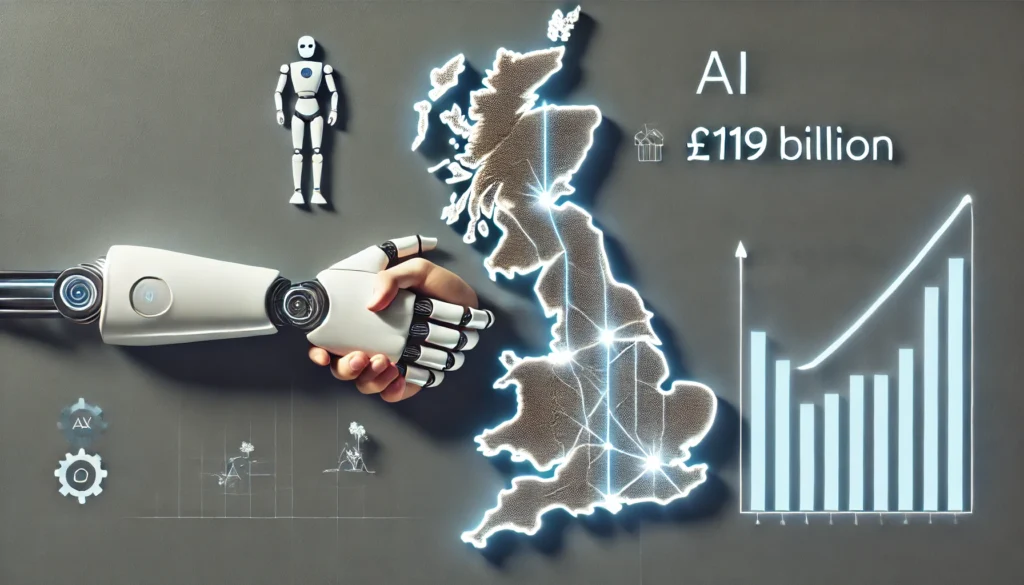Navigating the Future of AI: The World Economic Forum’s Blueprint for Equitable Progress

Navigating the Future of AI: The World Economic Forum’s Blueprint for Equitable Progress
The rapid evolution of artificial intelligence (AI) is transforming economies and societies. Recently, the World Economic Forum (WEF) unveiled a comprehensive blueprint aimed at fostering equitable AI growth globally. This initiative outlines strategic objectives designed to ensure that the benefits of AI are shared fairly, addressing existing disparities in access, infrastructure, and skills. Developed in collaboration with KPMG, the blueprint serves as a critical roadmap for stakeholders at every level, emphasizing local community needs and collaborative governance. As AI becomes increasingly integral to our future, the WEF’s vision paves the way for an inclusive, responsible, and sustainable approach to AI adoption. Explore further insights from this initiative and learn how to harness the power of AI for societal advancement.
Read the full report on the WEF’s blueprint for intelligent economies.
Understanding the WEF’s Blueprint for Intelligent Economies
The World Economic Forum’s (WEF) blueprint for Intelligent Economies highlights crucial strategic objectives aimed at fostering equitable AI adoption worldwide. This initiative is especially important as AI technologies become increasingly integrated into various aspects of daily life. The blueprint sets the stage for policymakers, businesses, and civil society organizations to work collaboratively to harness AI’s capabilities responsibly. By promoting an environment that reduces disparities in access to AI resources, the WEF aims to ensure that every community can benefit from advancements in this technology.
Prioritizing Equitable AI Access
One of the primary focuses of the WEF’s initiative is to address inequalities in AI access and implementation. Numerous studies show that regions with limited technological infrastructure often lag in embracing AI-driven advancements. The WEF proposes strategies such as:
- Infrastructure Development: Enhancing digital infrastructure in underserved regions is vital, as it provides the foundation for AI technologies to take root and flourish. Developing nations can benefit from investments in broadband connectivity and data centers.
- AI Education and Training: A significant gap exists in AI skills, which can impede a nation’s ability to innovate. Training programs aimed at equipping individuals with the necessary skills to work with AI technologies are imperative for fostering inclusivity in the AI landscape.
Research suggests that equitable access to AI can lead to significant economic benefits. According to a report by McKinsey, adopting AI technologies can add $13 trillion to the global economy by 2030, emphasizing the need for an inclusive approach to AI growth. For more information on this initiative, visit McKinsey’s research on AI adoption.
Establishing Collaborative Governance
To maximize the benefits of AI and mitigate its risks, collaborative governance is essential. The blueprint emphasizes the importance of cooperation among various stakeholders, including:
- Governments: National policies should prioritize inclusive AI legislation that nurtures innovation while protecting citizens’ rights.
- Private Sector: Companies must play an active role in responsibly deploying AI, ensuring ethical considerations are at the forefront of their initiatives.
- Civil Society: Engagement from communities ensures that the AI systems in place reflect the needs and values of the populations they serve.
An example of collaborative governance in action is the European Union’s AI Act, which aims to regulate AI technologies while promoting innovation. For more insights into these efforts, check out the European Commission’s overview of the AI Act.
Building Sustainable AI Infrastructure
Equipping nations with sustainable AI infrastructure is key to long-term AI success. This includes investing in energy-efficient data centers and ensuring that AI systems are powered by renewable energy sources. The report stresses the importance of sustainability in every aspect of AI development:
- Energy Efficiency: Nations should prioritize the adoption of energy-efficient technologies to curtail the carbon footprint of AI applications.
- Integration of ESG Principles: Environmental, Social, and Governance (ESG) principles must be integrated into AI strategies to promote responsible development and use.
For further reading on sustainable AI practices, explore the United Nations Environment Programme’s insights on AI and sustainability.
Cultivating Diverse and High-Quality Datasets
The effectiveness of AI models largely hinges on the quality of the datasets they rely upon. One of the blueprint’s strategic objectives is to curate diverse datasets that encompass various cultures, languages, and socio-economic backgrounds. This can combat AI biases that disproportionately affect marginalized groups. To ensure dataset inclusivity, countries need to:
- Foster Open Data Initiatives: Promoting open access to data from diverse communities can encourage innovation and create AI solutions that reflect a broader spectrum of society.
- Implement Ethical Guidelines: Establishing guidelines for data collection and usage can help mitigate biases and ensure fair representation in AI systems.
Establishing Ethical and Safety Standards
The need for robust ethical frameworks and safety standards for AI deployment is critical. The WEF blueprint emphasizes the importance of developing governance models that prioritize the ethical implications of AI technologies. Key components of effective governance include:
- Transparency and Accountability: AI systems must operate with transparency, allowing stakeholders to understand decision-making processes.
- Risk Management Frameworks: Developing comprehensive risk assessments ahead of AI deployment can proactively identify potential ethical breaches and mitigate risks.
For a deep dive into AI ethics, consider reading the Brookings Institution’s guide on AI ethics.
The Future of AI: A Call for Global Engagement
The WEF emphasizes the necessity of a global playbook for navigating the AI revolution. Given the potential challenges and risks posed by AI technology, it is critical for nations to engage in dialogue and collaborative efforts. The blueprint indicates that no single country can tackle these challenges in isolation; a multi-faceted, cooperative approach is essential. This includes sharing knowledge, resources, and strategies to create a holistic framework for AI governance.
Achieving equitable AI adoption requires a concerted effort from all parties involved—governments, industry leaders, academia, and civil society—through a lens focused on sustainability, inclusivity, and ethical responsibility.
Join the Movement Towards Equitable AI
As we stand at the crossroads of artificial intelligence innovation and societal impact, the World Economic Forum’s blueprint for equitable AI adoption shines a light on the path forward. By prioritizing equitable access, establishing collaborative governance, and prioritizing sustainable practices, this initiative serves as a crucial step toward ensuring that AI benefits all communities globally. Stakeholders across governments, businesses, and civil societies must embrace these strategies to foster inclusivity and ethical standards in AI development. Now is the time to get involved—whether by advocating for better policies, investing in education, or engaging in community dialogue about AI’s impact. For a deeper understanding of the ethical considerations surrounding AI, don’t miss the insights provided by the Brookings Institution’s guide on AI ethics. Together, we can navigate this transformative journey and shape a future where AI serves as a force for good.















































































































